【新唐人2011年12月3日訊】在中國,強拆房屋的事件層出不窮,有媒體分析了中美兩國的拆遷戶,他們在房屋遭到被拆的過程中,有著天壤之別的命運。
倪玉蘭畢業於中國政法大學,從事律師工作,她因為房屋被強拆陳情多年,當局為強拆動用警力,將倪玉蘭打成殘疾,後來她還被判刑,並被吊銷律師執照。倪玉蘭後來在牢獄中說,我的生命安全受到嚴重威脅,經常被西城公安警察毆打、謾罵、監視、跟蹤、軟禁,到醫院看病的權利已被警察剝奪,他們不准醫生給我看病。從2004年7月27號到2006年3月16號,我失去人身自由長達597天。
《美國之音》對比了地球的另一端,家住美國康州紐倫敦(New London)的凱露(Susette Kelo)遭遇。她5萬元購買不久的住宅被當局徵地拆遷,她提出訴訟,最後官司打到美國最高法院。美國參議院特別為這個案件舉辦聽證會。凱露最後拿到了40萬美元的補償,她的房子,沒有被推土機夷為平地,而是被整體挪到了另外一個街區。
北京律師唐吉田:「私人財產合法的制度,以及獨立的司法制度,以及體現人的基本權利、土地制度等等,這些制度上的因素,才使這兩個案子有這麼大的差別,這實際上也涉及到社會生存制度變革的問題,不解決這些非常關鍵的問題,這樣的悲劇,可能今天、明天都會有。」
最近,大陸作家閻連科兩年前入住的新房被強拆了,與他同樣命運的還有30多戶人家,閻連科在微博直播自家社區遭強拆的過程,另外他寫信給上層申訴也沒得到回應。在信中,他說「沒有人知道強拆中會發生甚麼事情,也沒有一個地方幹部去和他們接洽溝通。」
北京律師唐吉田表示,中國的土地制度有兩種,一種是全民所有,另外一種是集體所有,但實際上土地都不屬於人民所有。
北京律師唐吉田:「目前實際上產權是虛制的,也就是全國所有,全民怎麼行使這個所有權,是無法做到的,集體所有也是很難做得到的,那麼事實上就變成了部分官員所有。」
美國喬治梅森大學教授章天亮說,自由國家的人民有追求幸福的權利,其中包括對私有財產的保護,
美國喬治梅森大學教授章天亮:「私有財產保護是由法律來決定的,法律規定的,所以在美國這個有司法獨立的情況下,你去強佔別人的私有財產,你肯定會遇到很多法律上的麻煩,這些都是中國不具備的條件,基本上主要是因為兩邊的制度不一樣。」
章天亮認為,中國的貪官需要體制的保護,需要體制給他們利益,而這個體制又需要一幫人充當他們的打手,達成他們所要的目地,所以貪官和中共體制就形成了一個利益共同體。
美國喬治梅森大學教授章天亮:「因為中國拆遷的話,是有很多貪官污吏,他們的個人利益在裡邊的,因為中共的話,他現在唯一讓人效忠他的,就是靠給這些官員好處,如果這個體制不能夠給這些官員好處的話,這些官員他們不會這麼維護這個體制的。」
唐吉田表示,美國的司法對行政權有足夠的制約力,相對的,在中國司法不健全的體制下,隨處可見行政權被膨脹濫用。
北京律師唐吉田:「這些最終就是歸到一個問題,民權政府和這種由上而下的任命官員的模式,他的優劣就是非常明顯的,那麼至上而下的這些任命官員,他的眼睛只向上,他不考慮底層民眾的生活。」
唐吉田還說,中共靠這種強拆的模式來建設所謂的城市化,實際上就是把很多人推到生活貧困不安定的狀態。
新唐人記者朱智善、黃容、王明宇採訪報導。
Demolitions in China Versus US
In China, house demolitions are increasing.
Some media surveyed people whose houses were demolished
in China and in the US, and their fates are quite different.
Ni Yulan graduated from China University of Political Science
and worked as a lawyer.
She had been appealing for many years because her house
was demolished.
The Chinese authorities use police during planned demolitions
and beat Ni until she became disabled.
Later, Ni was sentenced and her lawyer's license was revoked.
Ni talked about how her life was seriously threatened in prison.
She was often beaten, insulted, monitored, tracked, and later
put under house arrest by police from the Xicheng police station.
She was not allowed to go to the hospital and doctors were
ordered not to see her.
She lost her freedom for 597 days, from July 27, 2004 to
March 16, 2006.
Voice of America compared it to Susette Kelo's experience.
She lived in New London, Connecticut, in the US.
Her newly purchased house paid with $50,000,
and was plan to move away by the authorities.
Then she filed a lawsuit, finally her case went to the U.S. Supreme Court.
The U.S. Senate held a hearing on her case.
In the end, Kelo was compensated $400,000 and her house
was not bulldozed to the ground, instead, it was moved to few blocks away from its original location.
Beijing lawyer Tang Jitian: "Private property ownership is
legal according to the law and basic human rights.
Those are based on the institutional of a social.
The difference of institutional factors make the two cases so different,
if in China don't have the social institutional changes,
then in China, tragedies will happen again today or tomorrow."
Recently, mainland writer, Yan Lianke,
had his 2-year-old home demolished.
More than 30 families also faced the same fate.
Yan Lianke described the step-by-step dismantling process on his own micro blog.
He also wrote a letter to the upper level authorities
but did not get a reply.
In the letter, he said, "No one knows what will happen
during the demolitions, and no local official communicated with them."
Beijing lawyer Tang Jitian said that there are two land systems
in China, one is land that belongs to the people, and the other is land that belongs to a group.
However, no land really belongs to the people.
Tang Jitian: "Currently, in China, there are no property rights,
that is, all property belongs to the state.
How could anyone exercise his or her right to ownership?
It cannot be done. Even collectively is very difficult to do.
Actually, the land belongs, in part, to the officials.”
Zhang Tianliang, a George Mason University professor, said
in a free country,
people have the right to pursue happiness,
including the right to protect their private property.
George Mason University professor Zhang Tianliang:
"Protection of private property is determined by the law.
There is judicial independence in the United States.
In this case, if you go to occupy another person's private property,
you are sure to encounter many legal issues.
In China there is no such thing.
Basically, it is because the two systems are different.
Zhang believes that corrupt officials in China
use the state system to protect their own self-interests.
In such a system,
gangs of thugs are used to reach the official's goals.
So the corrupt officials and the Chinese Communist Party's
(CCP) system serves to support each other's interests.
Prof. Zhang: "As for the demolitions taking place in China,
it involves the personal interests of many corrupt officials.
The only way the CCP can create loyalty within its ranks is to
provide these corrupt officials with numerous extra benefits.
If these officials do not receive these extra benefits,
they will not support the system as much."
Tang Jitian said that the U.S. judiciary has enough constraints
regarding the use of executive power.
In China's imperfect judicial system, you can see
executive power being abused on a regular basis.
Beijing lawyer Tang Jitian: "In the end, civil government
and the top-down power model of the CCP regime, obviously has its pros and cons.
The appointees only answer to the officials above them
and they do not consider people's lives below them."
Tang Jitian also said that the CCP carries out so-called
urbanization by demolition,
which actually push many people live in a poverty
and an unstable life.
NTD reporters Zhu Zhishan, Huang Rong and Wang Mingyu
看下一集

【禁聞】山東副省長傳貪560億 包養46情婦

【禁聞】「民主是好東西」 中國人難擁有
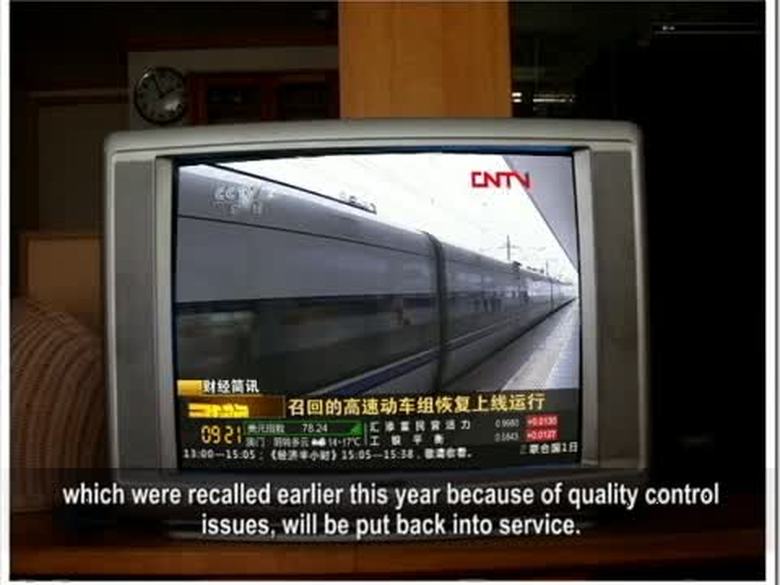
【禁聞】問題動車復出 高鐵安全再履薄冰?
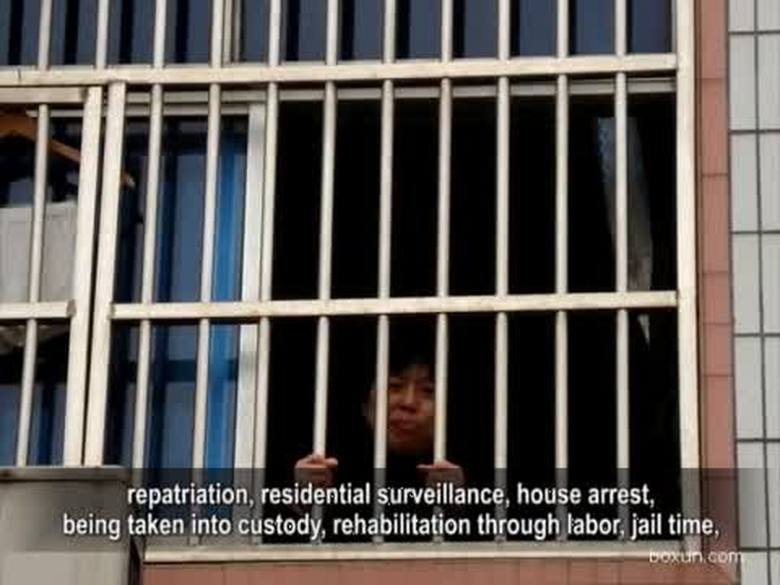
【禁聞】視訪民如敵人 公安監控軟件曝光
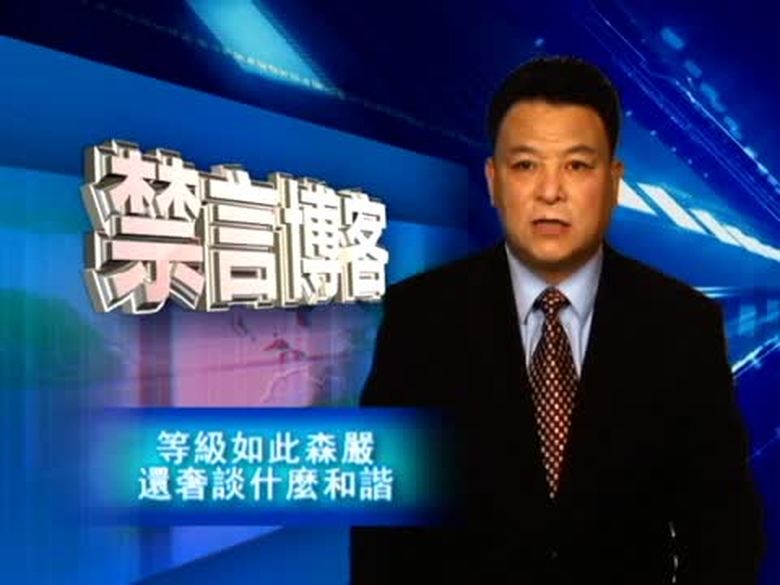
【禁言博客】等級如此森嚴,還奢談甚麼和諧
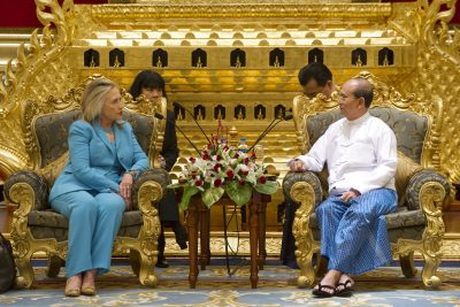
【禁聞】美國緬甸關係升溫 中共緊張﹖
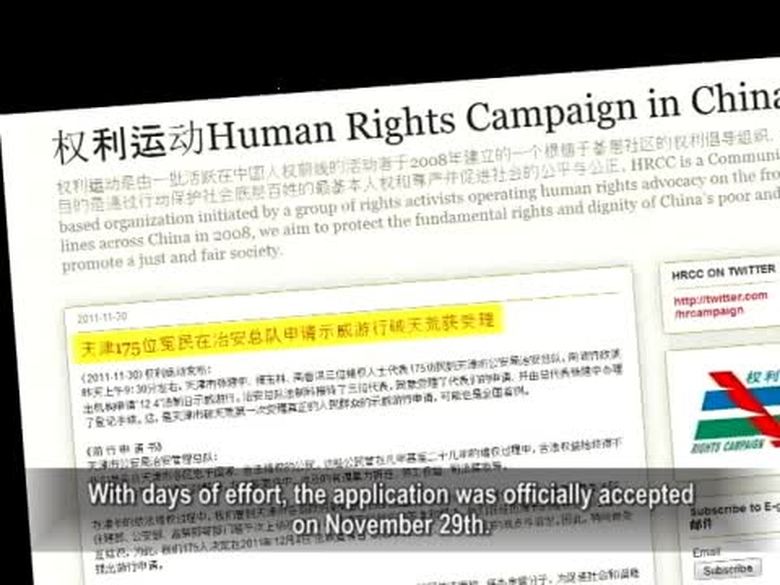
【禁聞】中共「法制宣傳日」有宣傳沒法治
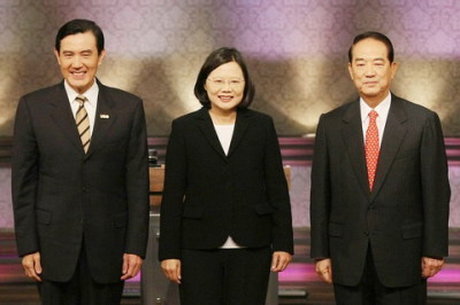
【禁聞】台灣大選辯論民主示範 陸官冷民熱
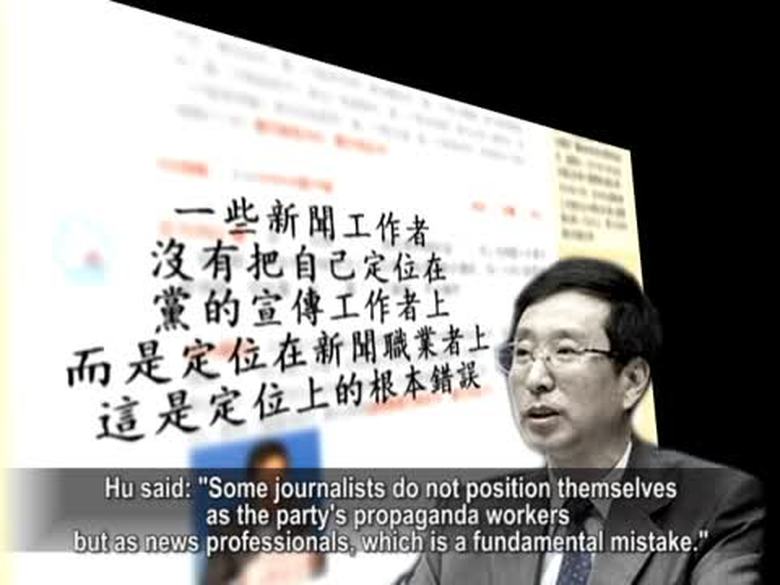
【禁聞】央視新臺長「喉舌」語錄引非議
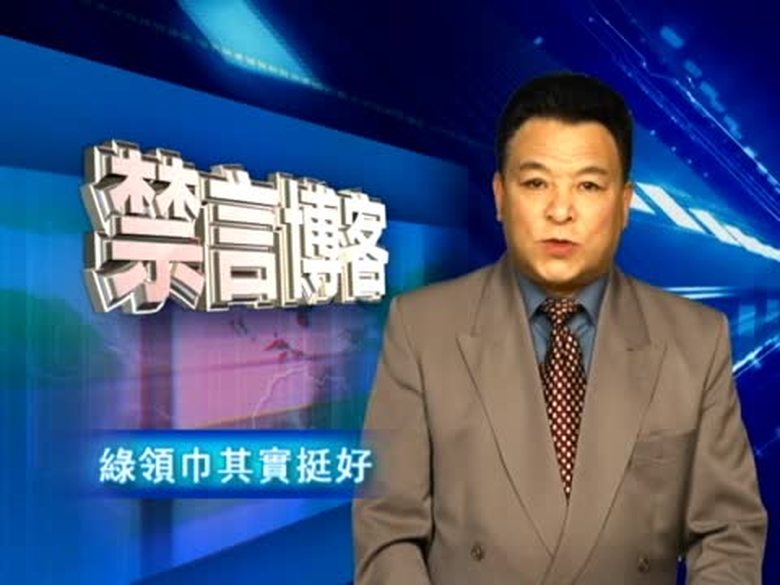
【禁言博客】GDP世界第二與我何干?
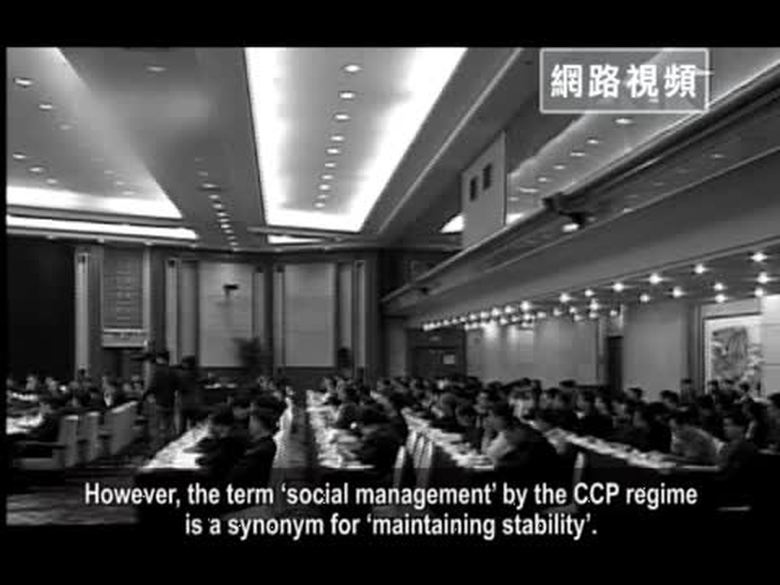
【禁聞】經濟滑恐釀動盪 周永康稱維穩緊迫
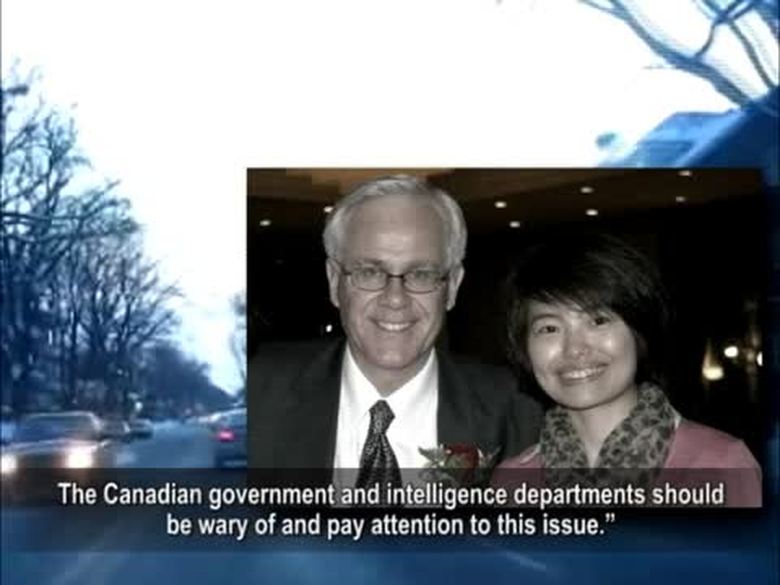
【禁聞】加拿大:中共桃色陷阱密佈 需警惕
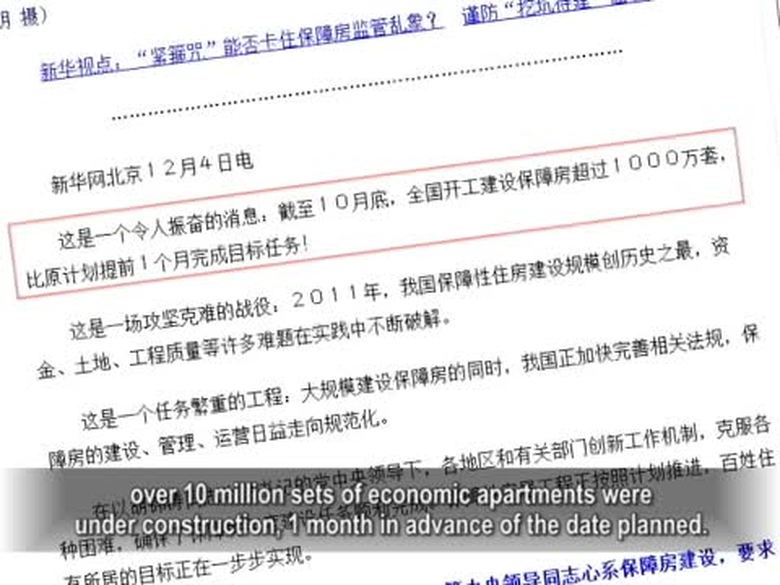
【禁聞】陷入大躍進的保障房
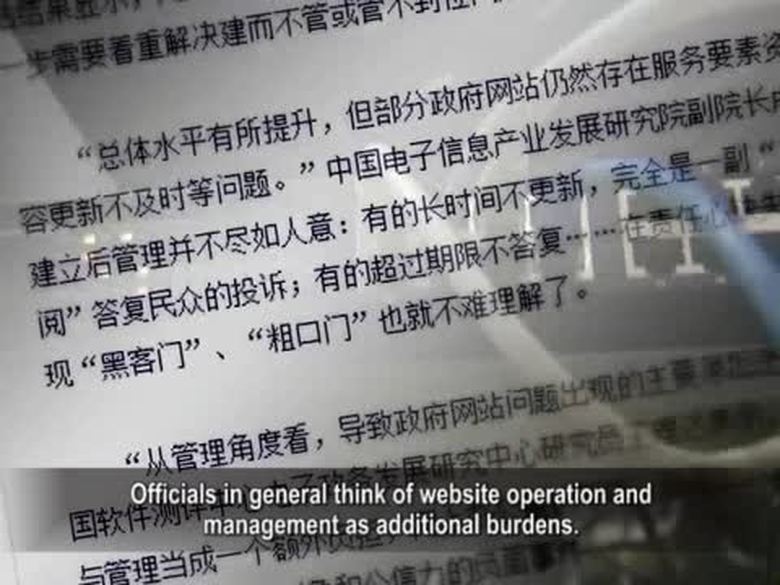
【禁聞】逾8成用戶對大陸政府網站不滿意
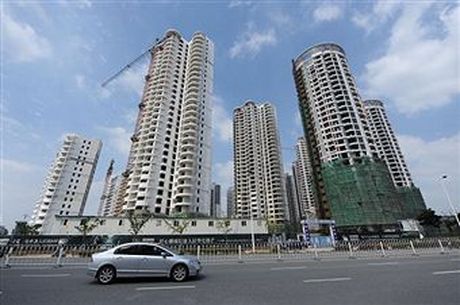
【禁聞】大陸房價拐點初現 當局再陷兩難
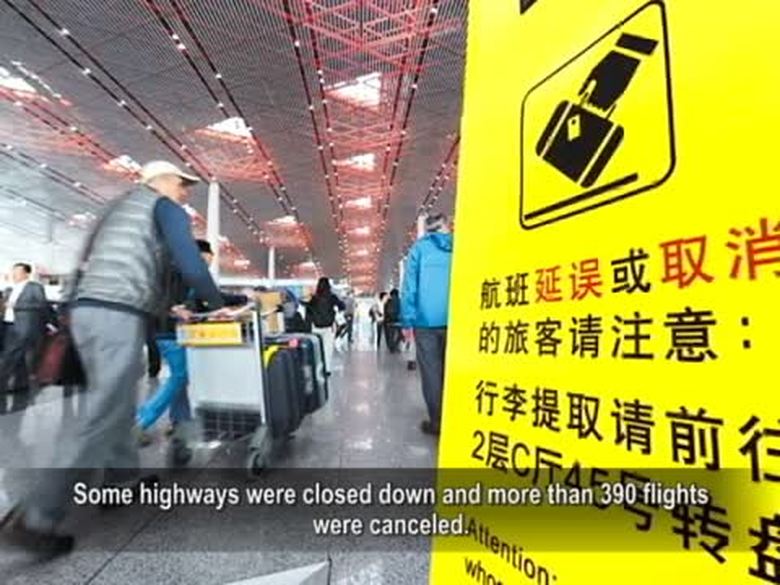
【禁聞】霧鎖北京 民眾受不了 官方說還好








